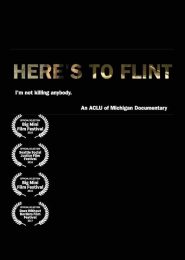The Marketing of Madness: Are We All Insane? (2009)
In the documentary The Marketing of Madness, directed by the BBC’s Horizon, viewers are thrust into the complex world of psychiatry, drug companies, and the lucrative industry of psychotropic drugs. Released in 2009, this eye-opening film peels back the layers of a high-income partnership that has created an $80 billion market for psychotropic medications. But beneath the glossy surface lies a deeper exploration of diagnoses, safety, and the impact of these drugs on individuals.
The Psychotropic Drugging Industry
Psychotropic drugs—those designed to affect the mind—are big business. The film reveals the symbiotic relationship between psychiatry and pharmaceutical companies. Together, they have cultivated an industry that profits from peddling psychotropic medications to an unsuspecting public. But how valid are psychiatrists’ diagnoses, and how safe are their drugs?
The James Randi Challenge
Enter James Randi, a renowned skeptic and magician. Randi has publicly offered $1 million to anyone who can provide convincing evidence of the effectiveness of homeopathy. For the first time in Horizon’s history, the program conducts its own scientific experiment to try and win Randi’s money. If successful, they won’t just be $1 million richer—they’ll also force scientists to reevaluate their fundamental beliefs about psychotropic drugs.
The Placebo Effect
The documentary delves into the placebo effect—a phenomenon where patients feel better simply because they believe a treatment will work. Large pills tend to work better than small ones, and colored pills outperform white ones. But could homeopathy’s benefits be entirely due to the placebo effect? If so, it shouldn’t work on babies or animals, who lack awareness of taking medicine. Yet many people insist it does.
Jacques Benveniste’s Controversial Research
In 1988, Jacques Benveniste experimented with highly diluted solutions, challenging conventional wisdom. Could homeopathy hold a scientific secret? Or was there a more rational explanation? The film raises questions about the role of science, skepticism, and the boundaries of our understanding.
The Legacy
The Marketing of Madness leaves us pondering. Could science have overlooked something? Is there a conventional explanation for homeopathy’s perceived effectiveness? The film doesn’t shy away from skepticism but invites us to explore the complexities of psychotropic drugs and the human mind. Whether we’re all insane or just caught in a web of marketing remains a contentious debate—one that continues to shape medical discourse.
In summary, The Marketing of Madness is not just a documentary; it’s a journey into the intersection of science, skepticism, and profit—an exploration that challenges our assumptions and urges us to seek truth beyond the surface.




